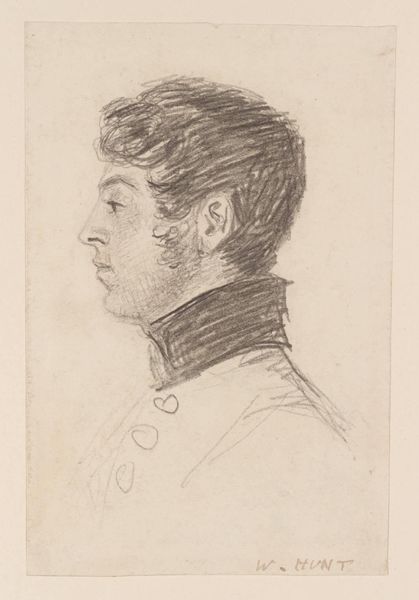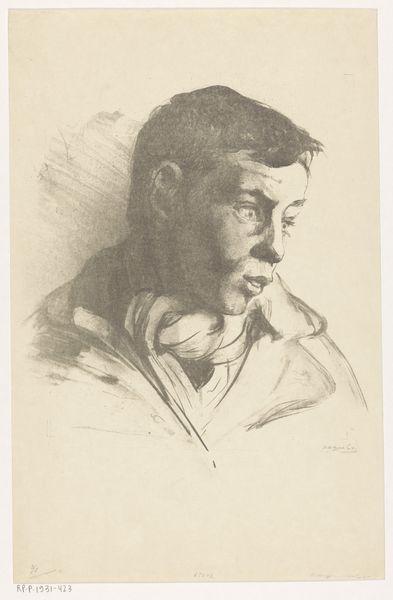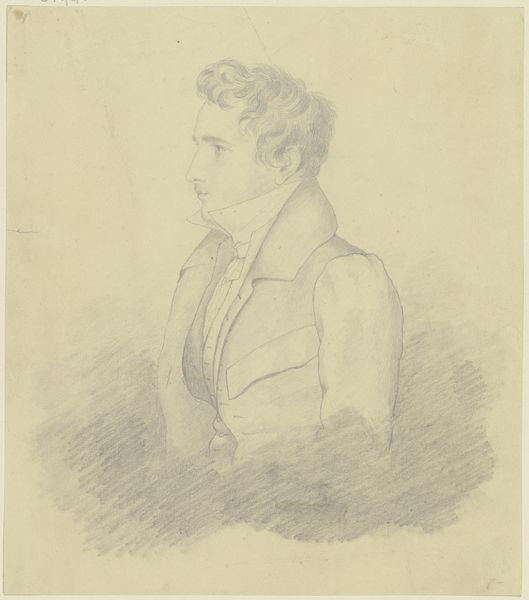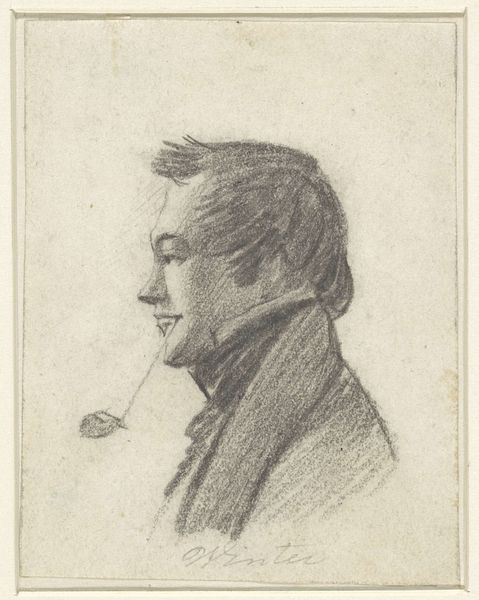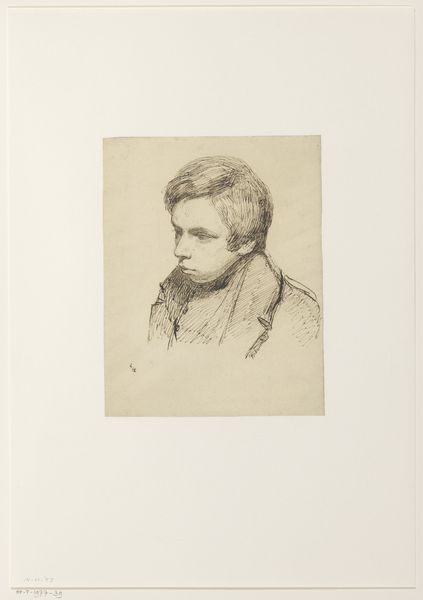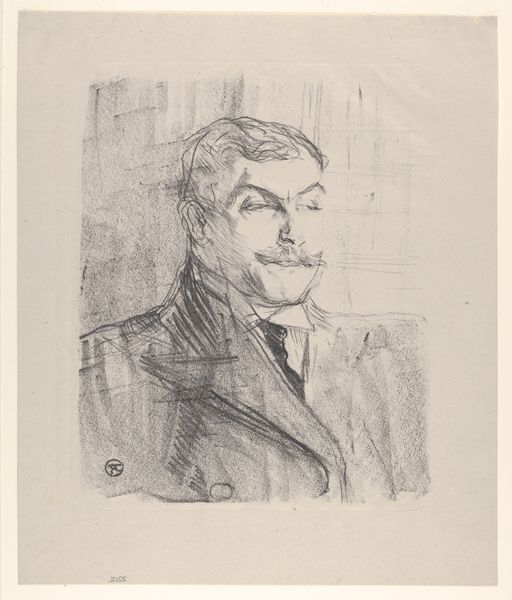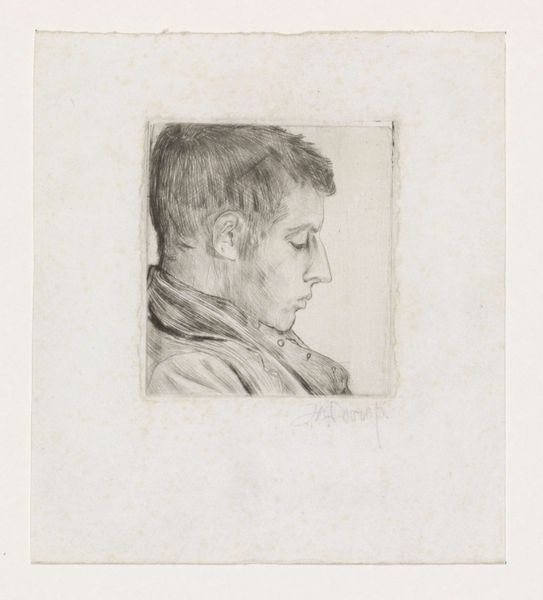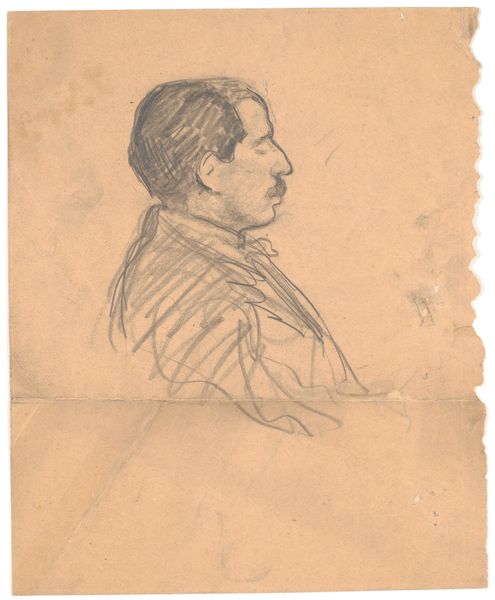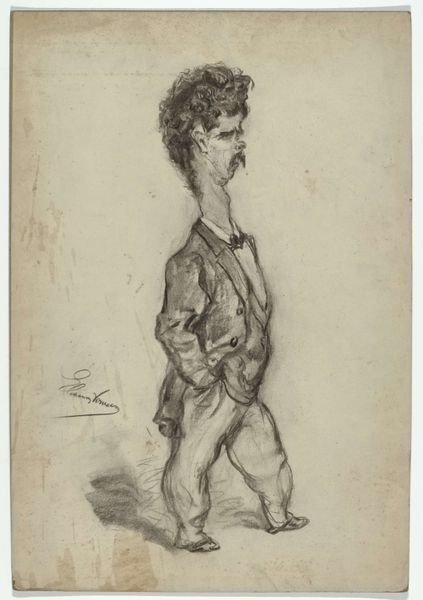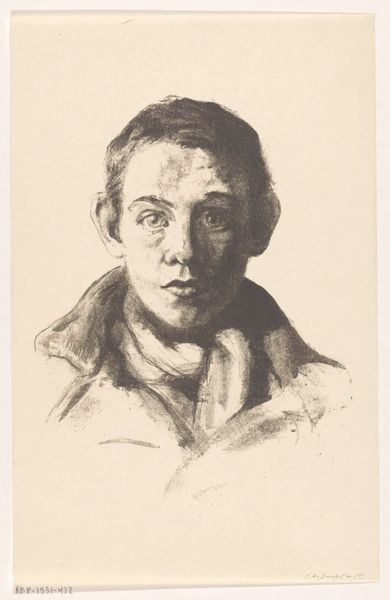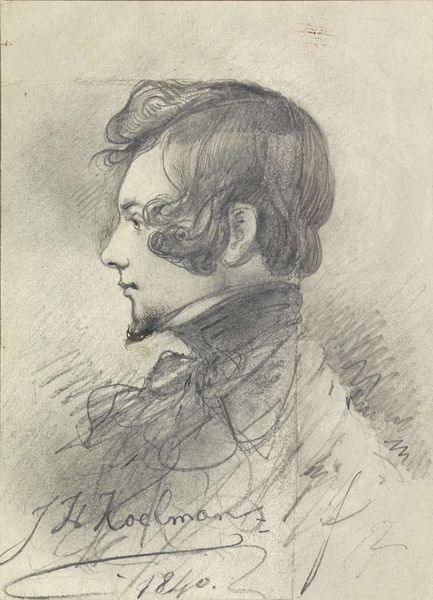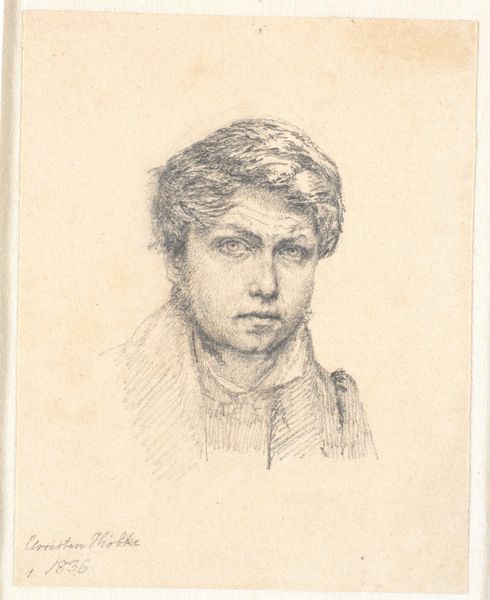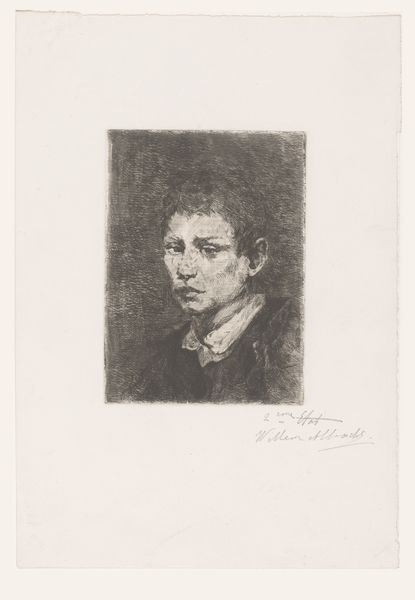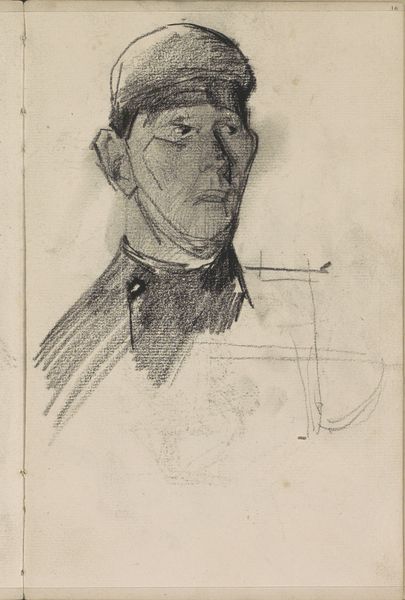
drawing, paper, graphite
#
portrait
#
drawing
#
self-portrait
#
neoclassicism
#
paper
#
romanticism
#
graphite
Dimensions: Sheet: 6 9/16 × 4 13/16 in. (16.6 × 12.2 cm)
Copyright: Public Domain
Paul Anton Skerl made this lithograph, "Portrait of a Young Man in Profile," around 1809. Lithography is a printmaking process that relies on the chemical repulsion between oil and water. The image is drawn on a flat stone or metal plate with a greasy substance, after which the surface is treated so that the non-image areas attract water and repel the greasy ink. The printmaker then applies ink to the surface, which adheres only to the drawn image. Finally, paper is pressed against the surface to transfer the ink, creating the print. Skerl's delicate handling of the lithographic crayon captures subtle gradations of light and shadow, giving the portrait a soft, almost atmospheric quality. The process was still relatively new at the time, but it allowed for the comparatively quick reproduction of images, making art more accessible. The lithograph thus democratized portraiture, making it available to a wider audience beyond the wealthy elite. Considering the materials and making processes involved sheds light on the artwork's social and cultural significance, challenging traditional distinctions between fine art and craft.
Comments
No comments
Be the first to comment and join the conversation on the ultimate creative platform.
